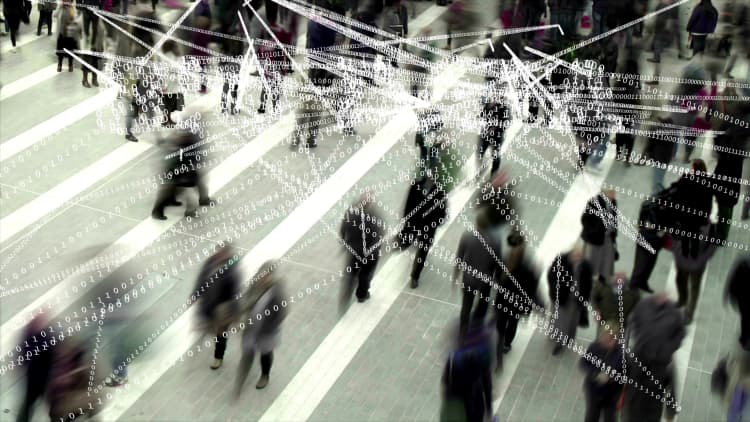Apple and Google on Monday revealed sample code and screenshots of example software using the companies' contact tracing software.
The two tech giants are backing a way to trace and notify people who may have been infected with Covid-19 using Bluetooth signals from people's phones anonymously.
Governments around the world are expected to release and encourage digital contact tracing apps to help public health departments slow the spread of the coronavirus as people go back to work. Apple and Google's system is one of several competing systems that say they can effectively trace and notify who's been in contact with infected people without compromising privacy.
Google and Apple are not building contact tracing apps. Instead, they've built a system, specifically called application programming interface (APIs) into iOS and Android that enable apps from officially whitelisted public health groups to more easily make contact tracing apps without draining battery life, particularly on Apple's iPhone, which restricts apps using Bluetooth in the background.
On Monday, Apple and Google released screenshots which they called illustrative concepts. This isn't the exact software that public health authorities will use, but it's a base for them to start without building an entire software program from scratch and it shows what the system is capable of. Apple and Google representatives said the sample code shared on Monday can kick off the process of building the contact tracing apps on their system.
The official system is expected to go live in mid-May. Apple and Google didn't comment on any individual countries or public health groups committed to using their system.
What users could see when a contact tracing app is first booted up:
Android
iOS
What users could see when they test positive for Covid-19 and input it into the app
Android
iOS
What an exposure notification that you may have been exposed to someone with Covid-19 could look like
Android
iOS
What settings look like
Android
iOS
Now it's up to governments and public health departments to choose which system they prefer. For example, in the U.K., its National Health Service is choosing to go with an app system that feeds data to public health authorities so they can reach out to potentially infected people manually, which is not possible when using Google and Apple's software unless the user sends their information .
Apple and Google support a decentralized approach that doesn't use GPS location data, collect a phone number or email address, saying that it's a more private way to do contact tracing. The hope is this system can get faster and more widespread adoption because users remain anonymous and are contacted through automation if they're at risk.
In the United States, there's no national effort to create a digital contact tracing app, leaving it to states and counties. The CDC recently published a document that outlines preferred criteria for digital contact tracing tools, including digital contact tracing apps, which it calls "proximity tracing" and Apple and Google call "exposure notification."
The guidelines don't endorse the Apple and Google system, but they open the door to "anonymous automated notifications" based on proximity like the Apple-Google system is designed to provide.



